
Treatment Of Yellow Spot Disease
Age - Related Macular Degeneration (Yellow Spot Disease)
Just like the rest of the world, yellow spot disease is one of the top problems which creates vision defect at the ages over 55-60 in Turkey. The problems like reading, driving, recognizing faces, watching tv are mostly caused by the yellow spot disease. The later stages of this disease don’t cause total blindness and the individual can go on the daily life.
Yellow spot disease, macular degeneration, or age-related macular degeneration (AMD) is a common eye disease that affects central vision. People with this disorder cannot see objects or people directly in front of them. Yellow spot disease is an age-related disease and is mostly seen over 50 years old people.
Yellow spot disease which is subject to ophthalmology can occur in both eyes and the level of symptoms can be mild to severe. The risk of yellow spot disease is higher as you get older. However, you can get yellow spot diseases at an early age as well. It is known that only in the States, there are more than 20 million macular degeneration cases.
In this article, we will first focus on the causes of yellow spot disease and the benefits of treatment of yellow spot disease. In the following part of the article, you can read about the types of treatment of yellow spot disease and diagnosis of yellow spot disease.
Causes of Yellow Spot DiseaseThere are two types of yellow spot diseases, macular degeneration. Dry macular degeneration and wet macular degeneration. Almost 90 percent of patients suffering from macular degeneration have dry degeneration. Macular degeneration can be an inherited eye disease. However, this disease can develop in any person. Macular degeneration occurs when the macula at the back of your eye begins to shrink. Diabetes, head injuries, and infections are among the reasons for yellow spot disease other than aging.
Many people with yellow spot disease do not realize that they have the disease as have no symptoms of yellow spot disease. Some of the symptoms of yellow spot disease can be lined up as below:
- Blurred vision
- Low vision
- Problems seeing colors as they are
- Difficulties to see objects in low light
- Straight lines that you see as curving
- Blank spots and dark spots in your vision
Age-related macular degeneration is one of the leading causes of vision loss. This type of vision loss hinders your ability to see what's in front of you. Macular degeneration can reduce your capacity in daily routines such as recognizing people and driving.
Previously, the best available treatment for macular degeneration was photodynamic therapy. In this treatment, a photosensitive drug is injected into the vein and a laser is used to seal the leaky blood vessels. Less than 15% of the patient who had this treatment can regain enough vision to drive and read. (About 20-40%)
If you have a wet form of macular degeneration, your doctor will inject anti-angiogenic drugs into your eye. These drugs prevent new blood vessels from forming and stop the leakage of the vessels that cause wet macular degeneration.
There is also a laser treatment option. High-energy laser light is used that can close and sometimes destroy abnormal blood vessels that have grown from wet macular degeneration.
In addition, some low vision aids devices with special lenses or electronic systems that magnify images of nearby objects are very useful in the treatment of macular degeneration, and yellow spot disease.
Types of Treatment of Yellow Spot DiseaseThere is no treatment for dry yellow spot disease. However, you can use some visual aids and day increase your daily life quality without a doubt. You can also speak to your medical expert about how to live with dry yellow spot disease, macular degeneration. For instance, they may suggest you use brighter lighting at home and get mobile applications that may help your condition using computers and mobile phones.
For wet yellow spot disease or wet macular degeneration, your doctor suggests regular eye injections. A light treatment called photodynamic therapy can also be applied in some cases. As a surgical procedure laser photocoagulation may be suggested by your eye doctor as a surgical treatment for yellow spot disease. Intravitreal implants and nutritional supplements can be an option in different cases as a part of treatment. Rehabilitation therapies should be also considered.
Diagnosing Yellow Spot Disease: Tests and Examination MethodsMacular degeneration rarely causes symptoms in its early stages. Annual controls are very important and increase the possibility of early diagnosis. Disease progression, risk factors, and genetic factors can be followed and understood in that way.
Your doctor will check for changes in your retina and macula and do various tests. For that, they can utilize high technology like retinal imaging. Some of the tests for diagnosis can be lined up as below:
- Dilated eye exam: You will be given a drop to dilate your eyes. Your doctor then uses a special lens to look inside your eyes.
- Optical coherence tomography (OCT): This imaging machine takes detailed images of the back of your eye.
- Optical coherence tomography angiography (OCTA): This diagnostic tool produces 3D images of the blood flow in your eye.
- Amsler grid test: An Amsler grid consists of straight lines with a large dot in the middle. Your eye doctor will ask you to identify lines that appear blurry, wavy, or broken. can show.
OUR DOCTORS
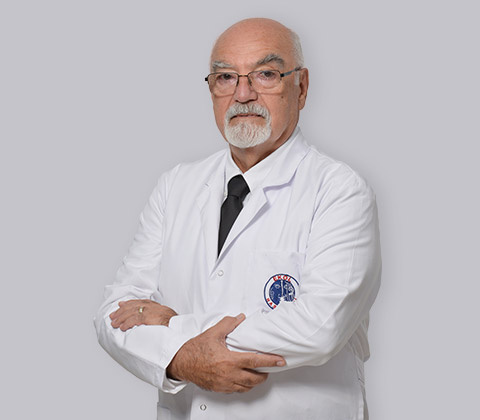 He was born in Ankara in 1945. He attended TED Ankara College, İzmir Bornova Anatolian High School and Ege University, Faculty of Medicine between 1963 and 1969, respectively. Upon his graduation, he started his specialization at Ege University, Faculty of Medicine, Eye Diseases Department and assumed the title of Eye Diseases Specialist in 1971. Between 1974 and 1975, he performed his military service as an ophthalmologist in Hatay Military Hospital in İzmir. After that, he was educated on Retinal Diseases and Lasers in Ophthalmology Clinic of the Faculty of Medicine at University of Gant, Belgium for 1 year. In 1977, he assumed the title of Associate Professor of Ophthalmology, and he founded and operated Retina and Contact Lenses units in Ege University, Faculty of Medicine, Department of Eye Diseases. In 1982 he became a Professor of Eye Diseases. Between 1992 and 2000, he served as the Head of Department of Eye Diseases, Faculty of Medicine, Ege University. In the meantime, he published 3 books and more than 150 domestic and foreign scientific papers, and about 170 papers in national and international congresses. He is married to Dr. Nigar Erbakan and has two sons.
He was born in Ankara in 1945. He attended TED Ankara College, İzmir Bornova Anatolian High School and Ege University, Faculty of Medicine between 1963 and 1969, respectively. Upon his graduation, he started his specialization at Ege University, Faculty of Medicine, Eye Diseases Department and assumed the title of Eye Diseases Specialist in 1971. Between 1974 and 1975, he performed his military service as an ophthalmologist in Hatay Military Hospital in İzmir. After that, he was educated on Retinal Diseases and Lasers in Ophthalmology Clinic of the Faculty of Medicine at University of Gant, Belgium for 1 year. In 1977, he assumed the title of Associate Professor of Ophthalmology, and he founded and operated Retina and Contact Lenses units in Ege University, Faculty of Medicine, Department of Eye Diseases. In 1982 he became a Professor of Eye Diseases. Between 1992 and 2000, he served as the Head of Department of Eye Diseases, Faculty of Medicine, Ege University. In the meantime, he published 3 books and more than 150 domestic and foreign scientific papers, and about 170 papers in national and international congresses. He is married to Dr. Nigar Erbakan and has two sons. 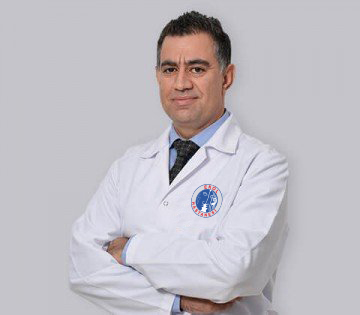 Dr Esat Çınar was born in Diyarbakır in 1976. He started İstanbul University, Faculty of Medicine in 1997 and graduated in 2003. He completed his speciality degree between 2003 and 2009 at İzmir Ege University, Faculty of Medicine, Ophthalmology Department. He was in charge of Glaucoma and Cornea Departments as a Deputy Associate Professor in İzmir University Hospital Faculty of Medicine, Department of Ophthalmology. He studied “Keratoplasty” in Ege University, Faculty of Medicine for 6 months (also known as “eye transplant”). He also was in charge of the controls of the premature babies’ in İzmir University Ophthalmology Department. He attended the course for vivisection both in clinical and laboratory fields for one month. His special interests are; Cataract surgery (multifocal, trifocal and thoric intraocular lenses), Cataract surgery with laser (Femtosecond Cataract), Keratoplasty, glaucoma surgery (non-penetrant surgeries such as viscocanalostomy, deep sclerotomy), Excimer Laser Surgeries (Lasik, Lasek, PRK), medical retinal diseases. He has many published articles in international indexes. He has many verbal and written presentations in national and international scientific meetings. He is an active member of the Turkish Association for Ophthalmology. He speaks fluent English and has one child.
Dr Esat Çınar was born in Diyarbakır in 1976. He started İstanbul University, Faculty of Medicine in 1997 and graduated in 2003. He completed his speciality degree between 2003 and 2009 at İzmir Ege University, Faculty of Medicine, Ophthalmology Department. He was in charge of Glaucoma and Cornea Departments as a Deputy Associate Professor in İzmir University Hospital Faculty of Medicine, Department of Ophthalmology. He studied “Keratoplasty” in Ege University, Faculty of Medicine for 6 months (also known as “eye transplant”). He also was in charge of the controls of the premature babies’ in İzmir University Ophthalmology Department. He attended the course for vivisection both in clinical and laboratory fields for one month. His special interests are; Cataract surgery (multifocal, trifocal and thoric intraocular lenses), Cataract surgery with laser (Femtosecond Cataract), Keratoplasty, glaucoma surgery (non-penetrant surgeries such as viscocanalostomy, deep sclerotomy), Excimer Laser Surgeries (Lasik, Lasek, PRK), medical retinal diseases. He has many published articles in international indexes. He has many verbal and written presentations in national and international scientific meetings. He is an active member of the Turkish Association for Ophthalmology. He speaks fluent English and has one child. 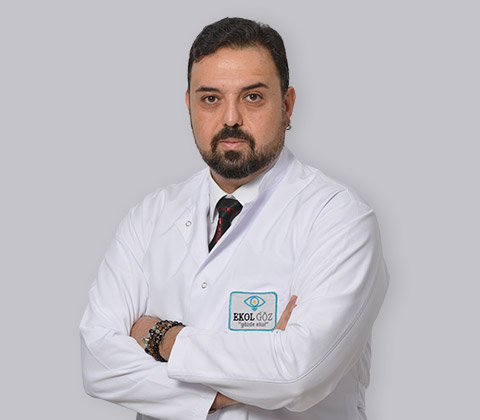 He was born in Izmir, in 1971. He attended summer school at Mids School of English, Eastbourn, England for learning a foreign language while he was in Bornova Anatolian High School and graduated with a high degree. He started his medical education at Ege University and continued with his specialization at JL Uni-Giessen, Germany, where he had the chance of working peer to peer with names such as Prof. Dr. Karl W. Jacobi, Prof Dr. Herbert Kaufmann, Prof. Dr. S. Pavlovic. Then, he found the opportunity to further his education in the field of refractive surgery by working with the most important names, such as Prof. Dr. T. Kohnen, JWG Uni-Frankfurt, Prof. Dr. I. Pallikaris, University of Crete, Prof Dr. Mahmut Kaşkaloğlu, Ege University Faculty of Medicine and Kaşkaloğlu Eye Hospital. Besides, he did scientific studies about medical glaucoma treatment, which is his other field of interest, with Ass. Prof. Dr. Karl Georg Schmidt, CGC Uni-Dresden. He is a member of DOG, ESCRS, ISRS of the AAO and TOD. He is married and has one child.
He was born in Izmir, in 1971. He attended summer school at Mids School of English, Eastbourn, England for learning a foreign language while he was in Bornova Anatolian High School and graduated with a high degree. He started his medical education at Ege University and continued with his specialization at JL Uni-Giessen, Germany, where he had the chance of working peer to peer with names such as Prof. Dr. Karl W. Jacobi, Prof Dr. Herbert Kaufmann, Prof. Dr. S. Pavlovic. Then, he found the opportunity to further his education in the field of refractive surgery by working with the most important names, such as Prof. Dr. T. Kohnen, JWG Uni-Frankfurt, Prof. Dr. I. Pallikaris, University of Crete, Prof Dr. Mahmut Kaşkaloğlu, Ege University Faculty of Medicine and Kaşkaloğlu Eye Hospital. Besides, he did scientific studies about medical glaucoma treatment, which is his other field of interest, with Ass. Prof. Dr. Karl Georg Schmidt, CGC Uni-Dresden. He is a member of DOG, ESCRS, ISRS of the AAO and TOD. He is married and has one child. 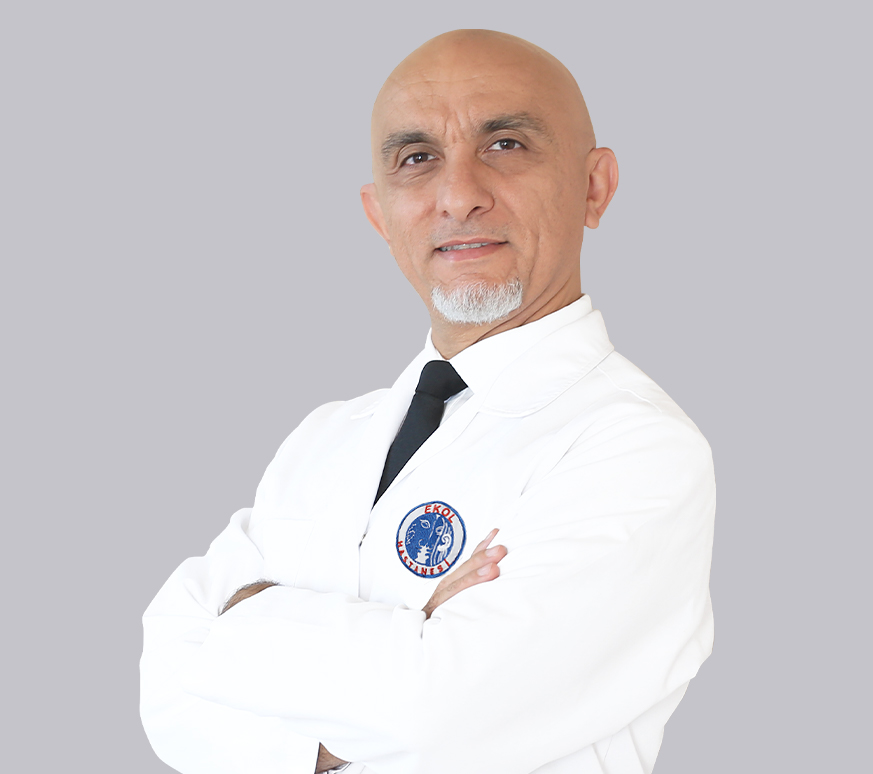 He graduated from Hacettepe University Faculty of Medicine in 1998. He completed his speciality in İzmir Dokuz Eylül University Faculty of Medicine Department of Eye Diseases between 1998 and 2002. He studied Retinal Surgeries in Munich Ludwig – Maximillian University Faculty of Medicine, Department of Eye Diseases. Special Interests: Cataract Surgeries (Multifocal, Trifocal, Toric Intraocular Lenses), Laser Cataract Surgeries (Femtosecond, Laser Cataract), Excimer Laser Surgeries (Lasik, Lasek, PRK) and Medical & Surgical Retinal Surgeries, Eyelid Surgeries. He has many articles published which were also scientifically indexed. He has oral and poster presentations in national & international science meetings. He is an active member of Turkish Society of Ophthalmology. He speaks English & German well, and married with 2 children.
He graduated from Hacettepe University Faculty of Medicine in 1998. He completed his speciality in İzmir Dokuz Eylül University Faculty of Medicine Department of Eye Diseases between 1998 and 2002. He studied Retinal Surgeries in Munich Ludwig – Maximillian University Faculty of Medicine, Department of Eye Diseases. Special Interests: Cataract Surgeries (Multifocal, Trifocal, Toric Intraocular Lenses), Laser Cataract Surgeries (Femtosecond, Laser Cataract), Excimer Laser Surgeries (Lasik, Lasek, PRK) and Medical & Surgical Retinal Surgeries, Eyelid Surgeries. He has many articles published which were also scientifically indexed. He has oral and poster presentations in national & international science meetings. He is an active member of Turkish Society of Ophthalmology. He speaks English & German well, and married with 2 children. 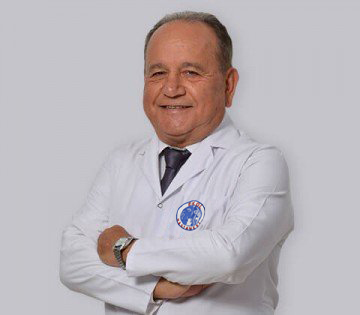 He graduated from Istanbul University, Faculty of Medicine and completed his specialty training in S.S.K Istanbul Hospital in 1984. He worked at Çanakkale State Hospital between 1984 and 2007. After 2007, he worked in private sector health units. He is an active member of The Turkish Ophthalmology Association and American Cataract and Refractive Association. Anterior segment (cataract) medical retina, glaucoma and contact lens are his areas of interest. He has a good command of English.
He graduated from Istanbul University, Faculty of Medicine and completed his specialty training in S.S.K Istanbul Hospital in 1984. He worked at Çanakkale State Hospital between 1984 and 2007. After 2007, he worked in private sector health units. He is an active member of The Turkish Ophthalmology Association and American Cataract and Refractive Association. Anterior segment (cataract) medical retina, glaucoma and contact lens are his areas of interest. He has a good command of English. 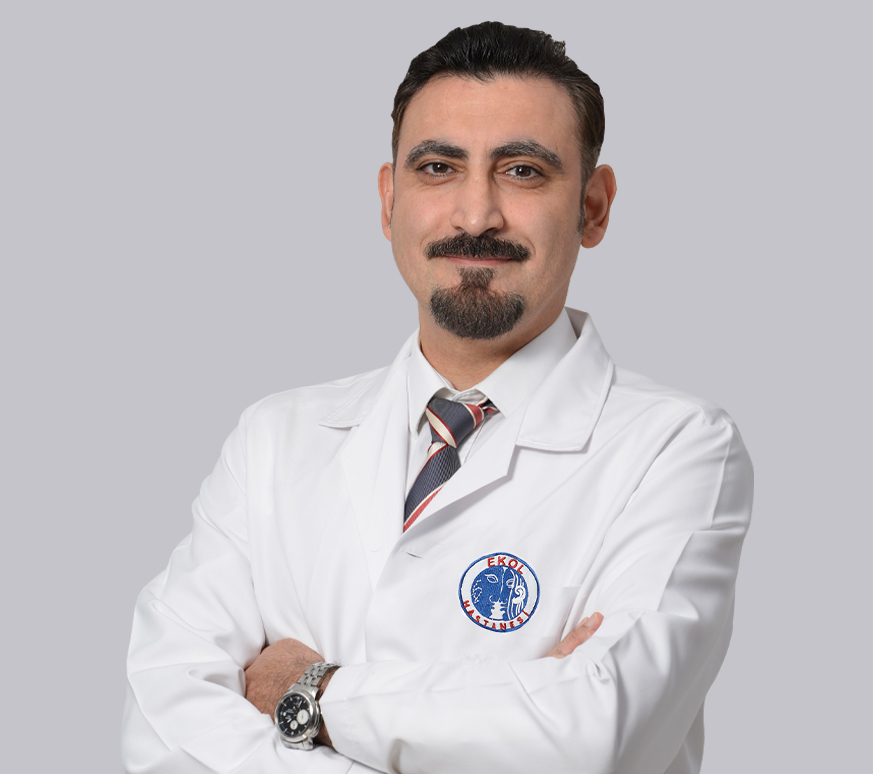 He was born in 1977. He graduated from Ege University. Fields of Interest: Cataract Surgery (Monofocal, Multifocal, Trifocal, EDOF, Toric Lenses) Excimer Laser (Femtosecond LASIK, PRK, No-Touch) ICL Keratoconus - Crosslink, Hard Contact Lens Application, Intrastromal Corneal Ring Strabismus Surgery Oculoplastic Surgery (Eyelid Aesthetic Surgery, Ectropium, Entropium, Ptosis, Probing, Tear Duct Obstruction) Pterygium Surgery (with Autograft) Glaucoma Medical and Laser Therapy Retinal Diseases (Intraocular Drug Injections, Diabetic Retinopathy, Yellow Spot Disease, Retinal Tears) Soft Contact Lens Inspection and Application He is a member of Turkish Association of Ophthalmology. He is married.
He was born in 1977. He graduated from Ege University. Fields of Interest: Cataract Surgery (Monofocal, Multifocal, Trifocal, EDOF, Toric Lenses) Excimer Laser (Femtosecond LASIK, PRK, No-Touch) ICL Keratoconus - Crosslink, Hard Contact Lens Application, Intrastromal Corneal Ring Strabismus Surgery Oculoplastic Surgery (Eyelid Aesthetic Surgery, Ectropium, Entropium, Ptosis, Probing, Tear Duct Obstruction) Pterygium Surgery (with Autograft) Glaucoma Medical and Laser Therapy Retinal Diseases (Intraocular Drug Injections, Diabetic Retinopathy, Yellow Spot Disease, Retinal Tears) Soft Contact Lens Inspection and Application He is a member of Turkish Association of Ophthalmology. He is married. 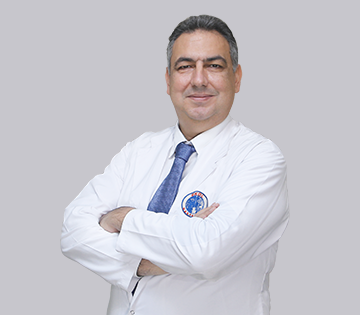 Dr. Kaan Okan Erdem was born in İzmir, in 1968. He finished middle school in Private İzmir Türk College and high school in Atatürk High School. He studied medicine in Selçuk University Faculty of Medicine. He is an active member of European Association of Cataract and Refractive Surgery, European Association of Ophthalmic Plastic and Reconstructive Surgery. He is interested in cataract, refractive surgery, oculoplastic and reconstructive surgery (upper and lower eyelids, tumour removals around the eye, entropium, ectropium ptosis, blepharoplasty), eye ultrasound, medical retinal and glaucoma. He speaks fluent English and married with 2 children.
Dr. Kaan Okan Erdem was born in İzmir, in 1968. He finished middle school in Private İzmir Türk College and high school in Atatürk High School. He studied medicine in Selçuk University Faculty of Medicine. He is an active member of European Association of Cataract and Refractive Surgery, European Association of Ophthalmic Plastic and Reconstructive Surgery. He is interested in cataract, refractive surgery, oculoplastic and reconstructive surgery (upper and lower eyelids, tumour removals around the eye, entropium, ectropium ptosis, blepharoplasty), eye ultrasound, medical retinal and glaucoma. He speaks fluent English and married with 2 children. 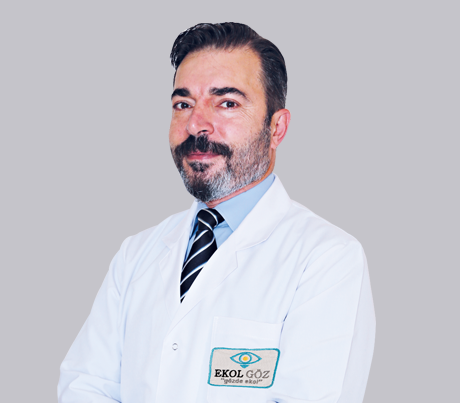 He graduated from Dokuz September University Faculty of Medicine in 1996. He completed his specialized education in the Department of Ophthalmology of the Faculty of Medicine of the Aegean University between 1996-2001 and earned the title of ophthalmologist Dec. He has published numerous scientific articles that fall into international scientific indexes. There are numerous oral and poster presentations to national and international scientific meetings. He is an active member of the Turkish Ophthalmology Association (Tod). He speaks good English, Opr. Dr. Uğur Karagöz is the father of 2 children. Special interests: Cataract surgery (multifocal, trifocal, Toric intraocular lenses) Cataract surgery with laser (Femtosecond Laser Cataract) Excimer laser surgeries (Lasik, Lasek, PRK) Medical and surgical Retina Eyelid Surgeries
He graduated from Dokuz September University Faculty of Medicine in 1996. He completed his specialized education in the Department of Ophthalmology of the Faculty of Medicine of the Aegean University between 1996-2001 and earned the title of ophthalmologist Dec. He has published numerous scientific articles that fall into international scientific indexes. There are numerous oral and poster presentations to national and international scientific meetings. He is an active member of the Turkish Ophthalmology Association (Tod). He speaks good English, Opr. Dr. Uğur Karagöz is the father of 2 children. Special interests: Cataract surgery (multifocal, trifocal, Toric intraocular lenses) Cataract surgery with laser (Femtosecond Laser Cataract) Excimer laser surgeries (Lasik, Lasek, PRK) Medical and surgical Retina Eyelid Surgeries 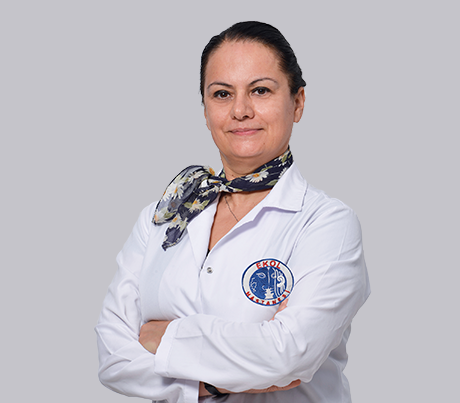 Born in Cyprus Serdarlı, he graduated from Nicosia Turkish High School. He graduated from Dokuz Eylul University Faculty of Medicine. He completed his specialization in Atatürk Health Site Yeşilyurt State Hospital with his thesis on the comparison of the rear camera lens application and the front camera lenses, which was started to be applied for the first time in the clinic under the management of Zühal Çakırca, the clinical chief. She worked as a contact lens center in İzmir for three years and then as chief physician at Karşıyaka Kızılay Fatma Kutluay Dispensary. He continued to work in Karşıyaka by establishing the Private Yalı Polyclinic in 2005 and the Private Yalı Eye Health Branch Center in 2007, his special interests are refraction and contact lenses. He is a member of the Turkish Ophthalmology Association.
Born in Cyprus Serdarlı, he graduated from Nicosia Turkish High School. He graduated from Dokuz Eylul University Faculty of Medicine. He completed his specialization in Atatürk Health Site Yeşilyurt State Hospital with his thesis on the comparison of the rear camera lens application and the front camera lenses, which was started to be applied for the first time in the clinic under the management of Zühal Çakırca, the clinical chief. She worked as a contact lens center in İzmir for three years and then as chief physician at Karşıyaka Kızılay Fatma Kutluay Dispensary. He continued to work in Karşıyaka by establishing the Private Yalı Polyclinic in 2005 and the Private Yalı Eye Health Branch Center in 2007, his special interests are refraction and contact lenses. He is a member of the Turkish Ophthalmology Association. 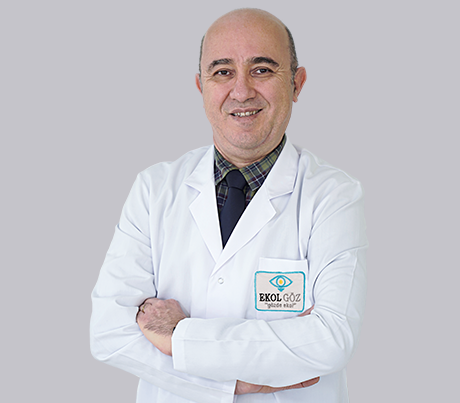 He graduated from Ege University Faculty of Medicine in 1989. Specialization he completed his education in Izmir Education and Research between 1991-1994. He completed his Ophthalmology Department at the Hospital. International A large number of scientific articles included in scientific indexes have been published. Numerous oral and poster presentations to national and international scientific meetings has a presentation. He is an active member of the Turkish Ophthalmology Association (TOD). Fluent in English, Opr. Dr. Gazi Duman is married and has two children. Special interests: Cataract Surgery (multifocal, trifocal, toric intraocular lenses) Cataract Surgery with Laser (Femtosecond Laser Cataract) Excimer Laser Surgery (Lasik, Lasek, PRK) Medical and Surgical Retina Eyelid Surgery Strabismus Surgery
He graduated from Ege University Faculty of Medicine in 1989. Specialization he completed his education in Izmir Education and Research between 1991-1994. He completed his Ophthalmology Department at the Hospital. International A large number of scientific articles included in scientific indexes have been published. Numerous oral and poster presentations to national and international scientific meetings has a presentation. He is an active member of the Turkish Ophthalmology Association (TOD). Fluent in English, Opr. Dr. Gazi Duman is married and has two children. Special interests: Cataract Surgery (multifocal, trifocal, toric intraocular lenses) Cataract Surgery with Laser (Femtosecond Laser Cataract) Excimer Laser Surgery (Lasik, Lasek, PRK) Medical and Surgical Retina Eyelid Surgery Strabismus Surgery 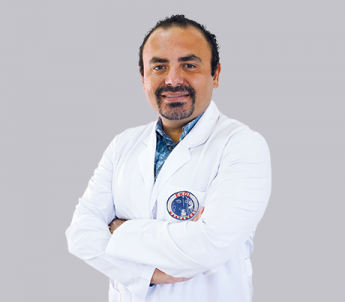 He graduated from Dokuz September University Faculty of Medicine in 2005. September 2005-2010, he completed his specialty education in the Department of Ophthalmology of the Faculty of Medicine of Dokuz Eylül University and earned the title of ophthalmologist. Dec. He has published a large number of scientific articles that have entered international scientific indexes. There are many oral and poster presentations to national and international scientific meetings. He is an active member of the Turkish Ophthalmology Association (TOD), the American Academy of Ophthalmology Association and the European Society of Cataract and Refractive Surgeons. He won the European Ophthalmology Qualification Exam (European Board of Ophthalmology) and became a FEBO. Opr, who is married and has 1 child. Dr. Hüseyin Aslankara speaks English well. Special interests: Retinal Diseases and Vitreoretinal Surgery Cataract Surgery (multifocal, trifocal, toric intraocular lenses) Cataract Surgery with Laser (Femtosecond Laser Cataract) Excimer Laser Surgeries (Lasik, Lasek, PRK) Strabismus Treatment and Surgery Children's Eye Diseases Eye Pressure (Glaucoma) Treatment and Operations Retinopathy of Prematurity and Its Treatment Eyelid Surgeries
He graduated from Dokuz September University Faculty of Medicine in 2005. September 2005-2010, he completed his specialty education in the Department of Ophthalmology of the Faculty of Medicine of Dokuz Eylül University and earned the title of ophthalmologist. Dec. He has published a large number of scientific articles that have entered international scientific indexes. There are many oral and poster presentations to national and international scientific meetings. He is an active member of the Turkish Ophthalmology Association (TOD), the American Academy of Ophthalmology Association and the European Society of Cataract and Refractive Surgeons. He won the European Ophthalmology Qualification Exam (European Board of Ophthalmology) and became a FEBO. Opr, who is married and has 1 child. Dr. Hüseyin Aslankara speaks English well. Special interests: Retinal Diseases and Vitreoretinal Surgery Cataract Surgery (multifocal, trifocal, toric intraocular lenses) Cataract Surgery with Laser (Femtosecond Laser Cataract) Excimer Laser Surgeries (Lasik, Lasek, PRK) Strabismus Treatment and Surgery Children's Eye Diseases Eye Pressure (Glaucoma) Treatment and Operations Retinopathy of Prematurity and Its Treatment Eyelid Surgeries 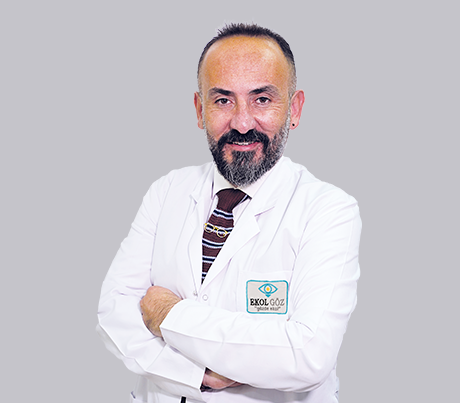 He was born in Nevşehir in 1977. He graduated from Ege University Faculty of Medicine in 2000. He completed his specialization education at Celal Bayar University Faculty of Medicine, Department of Ophthalmology between 2000-2004 and earned the title of ophthalmologist. He is the owner of the Turkish Ophthalmology Board Certificate, which was first given in 2003. A large number of scientific articles that entered international scientific indexes have been published. There are many oral and poster presentations to national and international scientific meetings. He is an active member of the Turkish Ophthalmology Association (TOD). Between 2007 and 2008, Ophthalmology Manual for General Practitioners, Brucellosis in the Etiology of Uveitis and A.O.O.O. There are book translations in Wound Healing Chapters. Op. Dr. Mustafa Alper Çerçi is fluent in English. Special interests: Cataract Surgery (multifocal, trifocal, toric intraocular lenses) Cataract Surgery with Laser (Femtosecond Laser Cataract) Excimer Laser Surgery (Lasik, Lasek, PRK) Medical Retina Eyelid Surgery Strabismus Glaucoma
He was born in Nevşehir in 1977. He graduated from Ege University Faculty of Medicine in 2000. He completed his specialization education at Celal Bayar University Faculty of Medicine, Department of Ophthalmology between 2000-2004 and earned the title of ophthalmologist. He is the owner of the Turkish Ophthalmology Board Certificate, which was first given in 2003. A large number of scientific articles that entered international scientific indexes have been published. There are many oral and poster presentations to national and international scientific meetings. He is an active member of the Turkish Ophthalmology Association (TOD). Between 2007 and 2008, Ophthalmology Manual for General Practitioners, Brucellosis in the Etiology of Uveitis and A.O.O.O. There are book translations in Wound Healing Chapters. Op. Dr. Mustafa Alper Çerçi is fluent in English. Special interests: Cataract Surgery (multifocal, trifocal, toric intraocular lenses) Cataract Surgery with Laser (Femtosecond Laser Cataract) Excimer Laser Surgery (Lasik, Lasek, PRK) Medical Retina Eyelid Surgery Strabismus Glaucoma 










